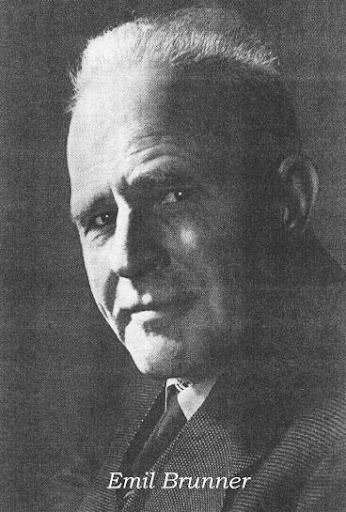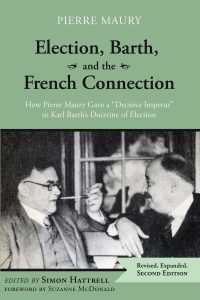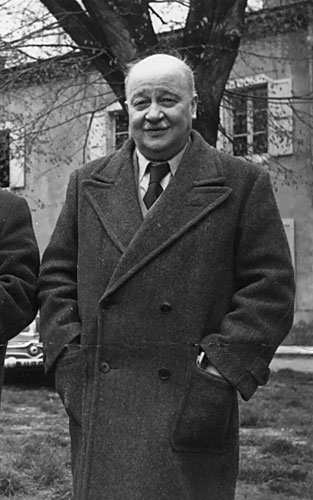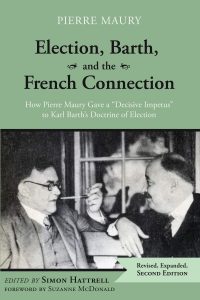Evil & Election
Although God created, rules, and guides the world God is not the sole actor in it. The reality of evil and suffering in the world calls divine providence and goodness into question. “Who can deny that this is a bedevilled world?” (30). Although Brunner acknowledges the reality of a diabolical power inimical to God, the greater issue is the stubborn opposition to God’s will which arises in human willing and which results in that being done which God does not will. God allows this. The disorder in the world is not a sign that God’s rule has been overthrown or forfeited. Rather, God gives time and space for the human creature to learn of God, to hear his Word, and freely to turn to God.
Hence He gives us, situated as we are in this deranged world, His Word, namely, the Law and the Promises, that we, perceiving the insane folly of evil and the fixed nature of His love, may return to Him in freedom and gladness (31).
Further, God has given himself to the world in Jesus Christ, permitting the world to rage against him, and in and through the cross of Christ demonstrating that he is Lord even in the face of the greatest human evil. Indeed, “men even in rebellion against him still remain tools in His hand to be used as He wills” (32).
In the Cross of Jesus Christ we perceive that destruction is not God’s will, and that in spite of it God keeps His masterly grip upon the world, and accomplishes His counsels of love. He gives us time to decide for ourselves, to turn to him (32).
Brunner does not pretend to explain God’s purpose in the face of the horrendous evil in the world. He places the blame for this evil squarely on the misuse of human free will and the diabolical power at work in the world. God does not will this evil and suffering or the derangement of this bedevilled world. But in the darkness of this world God shows us his will, found in the commandments and the gospel of forgiveness and salvation (33). The task of the church is to not explain but to announce the triumph of God’s love as revealed in the cross of Christ. Or to put it in words that Brunner does not use: the gospel is our theodicy. God has not given us an explanation for evil and suffering but an answer and a hope, grounded in the cross and resurrection of Jesus.
God’s purposes are grounded in the eternal thought and will of God, in ‘the eternal counsels’ of the God who views us graciously: “Deep, deep are the roots of our life” (33). Divine election signifies both origin—we come from eternity—and destiny—we are destined for eternity. The ‘we’ in this sentence is the believer; the circle of election is the circle of faith.
The elect in themselves are only ‘them that believe.’ And believers are those who in their hearts ‘have become obedient to the Word of God.’ Election dawns upon no one except in the full, independent, obedient and trustworthy decision of faith. … Election and obedience, election and personal decision of faith belong inseparably together in the Bible. One cannot play election off against decision, nor personal decision against election, tempting though that be to reason. Reason must bow here, yet dare not abdicate. How the two can be reconciled, the free eternal election of God and the responsible decision of man is a problem we cannot understand (35, original emphasis).
Election thus involves first God’s free, eternal decision and then a person’s responsible decision, the latter grounded in the former: “When a man is permitted to perceive that God sees him from eternity … A man then knows…” (34). Brunner rejects the idea of ‘double predestination,’ the idea that God from all eternity has chosen some for salvation and others for damnation. Of this doctrine,
There is no word to be found in the Holy Scripture. One can scarcely avoid drawing this conclusion from the teachings of the Scripture. Logic always misleads in that direction. But the Scripture itself does not do it, nor should we (35).
Thus, Brunner holds an election to faith and a judgement of the unbelieving. He insists that underlying all this is the divine will and purpose but refuses to draw the logical conclusion that God is responsible for the fate of the unbelieving. The teaching of Scripture is ‘a-logical’ (36), a mystery beyond our ability but a mystery nonetheless that may be believed and in which we may rejoice. This election—and thus our salvation—is entirely by grace alone, the operation of God’s boundless love and mercy. This is the Christian’s ‘greatest joy,’ and the true source of the ‘peace that passes all understanding’ (34).





